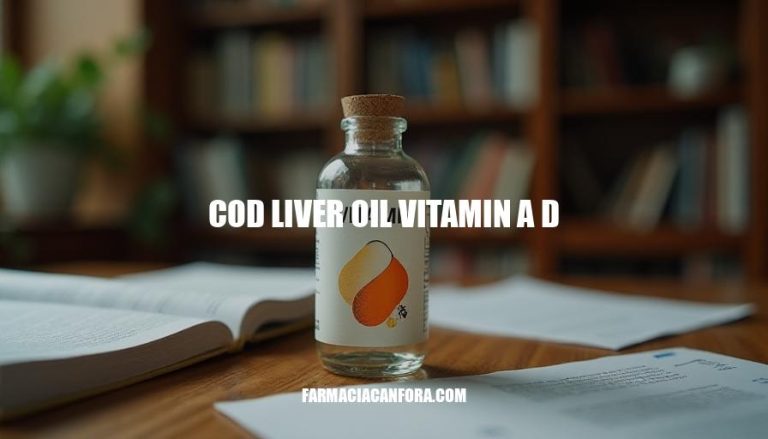


Cod liver oil is made from the liver of cod fish. It’s been used for centuries to help with vitamin deficiencies. The Vikings used to steam fresh cod livers over birch branches to get the oil.
The oil has a lot of vitamin A and vitamin D, as well as omega-3 fatty acids like EPA and DHA.
Vitamin A helps with vision, immune function, and cellular health. Vitamin D is important for calcium absorption and bone strength.
Cod liver oil was used to prevent and treat rickets in the early 20th century. Even though foods are now fortified with vitamin D, cod liver oil is still a valuable supplement, especially in areas with limited sunlight.
It’s good for bone health, immune function, and overall well-being. But it’s essential to consume it mindfully because excessive intake can be toxic.
Cod liver oil is a powerhouse of essential nutrients, particularly vitamins A and D, which play crucial roles in maintaining overall health.
Vitamin A in cod liver oil is vital for the immune system. It enhances the body’s ability to fight infections by supporting the production and function of white blood cells. These cells are responsible for identifying and eliminating pathogens.
Additionally, vitamin A helps maintain the integrity of mucosal barriers in the respiratory and gastrointestinal tracts, preventing harmful microorganisms from entering the body.
Vitamin D also plays a significant role in immune health. It regulates the activity of immune cells, reducing excessive inflammation and enhancing the body’s defense mechanisms. Studies suggest that adequate vitamin D levels can lower the risk of respiratory infections and autoimmune diseases.
Cod liver oil is rich in vitamin A, which is essential for maintaining good vision.
This vitamin supports the function of the retina, particularly in low-light conditions, reducing the risk of night blindness. It also helps prevent age-related macular degeneration, a leading cause of vision loss.
Omega-3 fatty acids present in cod liver oil further contribute to eye health by reducing inflammation and improving tear production, which can alleviate dry eye syndrome. Additionally, these fatty acids enhance blood circulation to the eyes, supporting overall visual function.
Vitamin D in cod liver oil is crucial for bone health as it facilitates calcium absorption in the intestines.
Without sufficient vitamin D, the body struggles to maintain adequate calcium levels, leading to weakened bones and an increased risk of fractures. This vitamin also plays a role in bone remodeling, ensuring that old bone tissue is replaced with new, strong tissue.
Vitamin A contributes to bone health by supporting osteoblast function, the cells responsible for bone formation. However, excessive intake of vitamin A can negatively impact bone density, so balanced consumption is essential.
Cod liver oil provides a well-rounded combination of nutrients that support immune function, eye health, and bone strength, making it a valuable addition to a healthy diet.
1www.healthline.com2naturalremedyideas.com3www.webmd.com
Cod liver oil is a rich source of vitamins A and D, essential nutrients that play crucial roles in maintaining overall health.
Vitamin A supports immune function by enhancing the body’s ability to fight infections and maintaining mucosal barriers, while also promoting eye health by supporting retinal function and reducing the risk of night blindness and age-related macular degeneration. Vitamin D is vital for bone health, facilitating calcium absorption and bone remodeling, and also plays a role in immune health by regulating inflammation and enhancing defense mechanisms.
The omega-3 fatty acids present in cod liver oil further contribute to eye health by reducing inflammation and improving tear production, and support overall visual function. Cod liver oil provides a well-rounded combination of nutrients that support immune function, eye health, and bone strength, making it a valuable addition to a healthy diet.
As a natural supplement, cod liver oil can help maintain overall health and well-being, particularly in areas with limited sunlight where vitamin D deficiency is common. However, it’s essential to consume it mindfully due to the risk of toxicity from excessive intake.